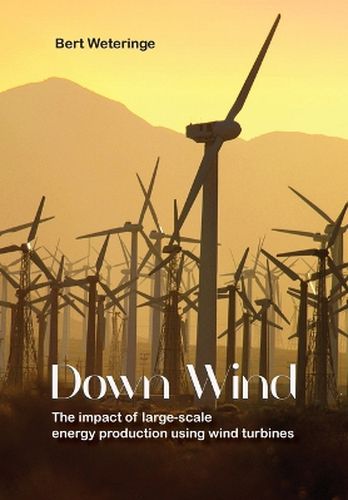Readings Newsletter
Become a Readings Member to make your shopping experience even easier.
Sign in or sign up for free!
You’re not far away from qualifying for FREE standard shipping within Australia
You’ve qualified for FREE standard shipping within Australia
The cart is loading…






This title is printed to order. This book may have been self-published. If so, we cannot guarantee the quality of the content. In the main most books will have gone through the editing process however some may not. We therefore suggest that you be aware of this before ordering this book. If in doubt check either the author or publisher’s details as we are unable to accept any returns unless they are faulty. Please contact us if you have any questions.
In the summer of 2023, it becomes evident that the wind power industry is facing serious challenges. Sweden's Vattenfall is denied permission by its own government for a wind farm on Sweden's west coast. The reason? "Negative impacts on the environment." Vattenfall also cancels the construction of a new offshore wind farm on England's North Sea coast due to 'costs'.
However, as part of the energy transition, large-scale energy production with wind turbines should play an even more significant role. Currently, there are an estimated 200,000 wind turbines worldwide. If we aim to eliminate fossil fuels by 2050, approximately 2,000,000 more wind turbines need to be constructed.
Has the wind industry finally come to its senses and recognised that building, installing and operating wind turbines is very expensive? That the huge amounts of materials - steel, concrete and plastic - cannot be extracted or produced in an environmentally friendly way? Not to mention the disposal after 20 years of operation. In fact, rotor blades still cannot be recycled and therefore have to be landfilled or incinerated.
Moreover, wind turbines have a significant impact on our environment. Large numbers of (sea) birds, bats and insects are already being killed by the spinning rotor blades. Horizon pollution, infrasound and dropshadow are driving more and more people to despair and there seems to be no end in sight. Honest calculations also show that wind power is not only very expensive, but also that power cannot be guaranteed due to the variability of the wind.
Isn't it high time to recognise that wind power is nothing more than wind trading, so we should reconsider its role as the sought-after solution?
Bert Weteringe is an aeronautical engineer.
$9.00 standard shipping within Australia
FREE standard shipping within Australia for orders over $100.00
Express & International shipping calculated at checkout
Stock availability can be subject to change without notice. We recommend calling the shop or contacting our online team to check availability of low stock items. Please see our Shopping Online page for more details.
This title is printed to order. This book may have been self-published. If so, we cannot guarantee the quality of the content. In the main most books will have gone through the editing process however some may not. We therefore suggest that you be aware of this before ordering this book. If in doubt check either the author or publisher’s details as we are unable to accept any returns unless they are faulty. Please contact us if you have any questions.
In the summer of 2023, it becomes evident that the wind power industry is facing serious challenges. Sweden's Vattenfall is denied permission by its own government for a wind farm on Sweden's west coast. The reason? "Negative impacts on the environment." Vattenfall also cancels the construction of a new offshore wind farm on England's North Sea coast due to 'costs'.
However, as part of the energy transition, large-scale energy production with wind turbines should play an even more significant role. Currently, there are an estimated 200,000 wind turbines worldwide. If we aim to eliminate fossil fuels by 2050, approximately 2,000,000 more wind turbines need to be constructed.
Has the wind industry finally come to its senses and recognised that building, installing and operating wind turbines is very expensive? That the huge amounts of materials - steel, concrete and plastic - cannot be extracted or produced in an environmentally friendly way? Not to mention the disposal after 20 years of operation. In fact, rotor blades still cannot be recycled and therefore have to be landfilled or incinerated.
Moreover, wind turbines have a significant impact on our environment. Large numbers of (sea) birds, bats and insects are already being killed by the spinning rotor blades. Horizon pollution, infrasound and dropshadow are driving more and more people to despair and there seems to be no end in sight. Honest calculations also show that wind power is not only very expensive, but also that power cannot be guaranteed due to the variability of the wind.
Isn't it high time to recognise that wind power is nothing more than wind trading, so we should reconsider its role as the sought-after solution?
Bert Weteringe is an aeronautical engineer.